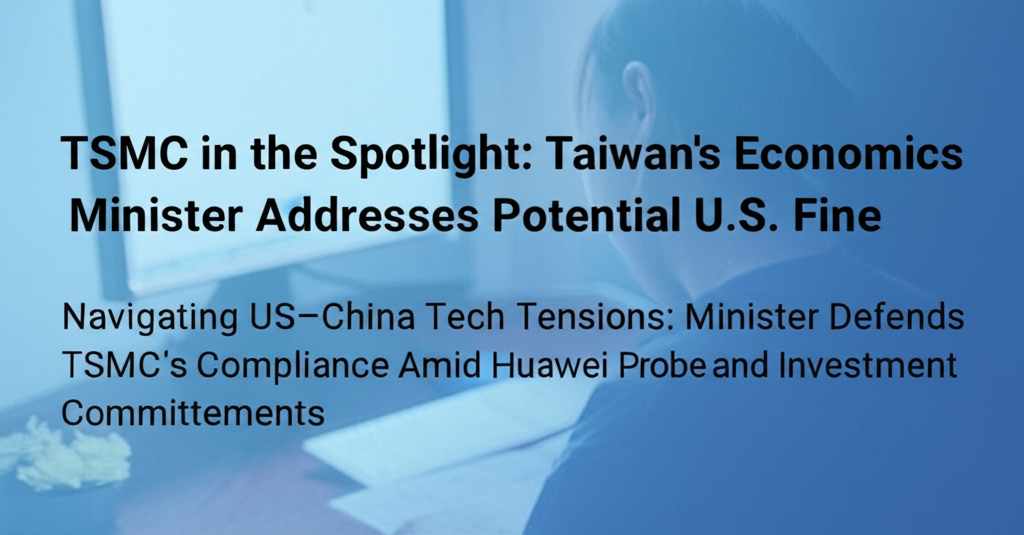TSMC in the Spotlight: Taiwan's Economics Minister Addresses Potential U.S. Fine
Navigating US-China Tech Tensions: Minister Defends TSMC's Compliance Amid Huawei Probe and Investment Commitments.

Taipei, Taiwan – Amidst escalating scrutiny from the U.S. Department of Commerce (DOC), Taiwan's Economics Minister Kuo Jyh-huei (郭智輝) has voiced strong support for Taiwan Semiconductor Manufacturing Co. (TSMC). Speaking on the sidelines of a Legislative Yuan hearing, Kuo emphasized that TSMC, a global leader in contract chip manufacturing, adheres to all relevant legal standards, especially in countries they are operating in. The comments came following reports suggesting TSMC could face a significant fine related to a U.S. export control investigation.
Reports, originating from Reuters, indicate TSMC could be subject to a fine potentially exceeding US$1 billion. This stems from an investigation into a TSMC-made chip discovered in Huawei's high-end Ascend 910B artificial intelligence processor. Huawei, a Chinese telecommunications giant, was placed on a U.S. trade restriction list in 2019 for national security concerns.
The potential fine, as reported, is tied to export control regulations that allow penalties up to twice the value of transactions violating sanction rules. Lennart Heim, a researcher at RAND's Technology and Security and Policy Center, was cited stating that TSMC manufactured a significant number of chips matching the design ordered by Chinese IC designer Sophgo, which likely ended up with Huawei.
The investigation began last fall when the Canadian-based tech research firm TechInsights discovered a TSMC chip within a Huawei 910B AI chip. TSMC notified the U.S. DOC in October 2023 about TechInsights' findings, asserting its commitment to comply with all applicable rules and regulations. They have not supplied Huawei since mid-September 2020.
The Huawei Ascend 910B is considered the most advanced mass-produced AI chip from a Chinese company, providing an alternative to the U.S.-based Nvidia Corp. Moreover, a recent report also brought up Trump's warning that TSMC would face taxes if they didn't build plants in the U.S.
Adding another layer of complexity, TSMC has committed to substantial investments in the U.S., pledging an additional US$100 billion in Arizona over the coming years to build multiple advanced wafer fabs, assembly plants, and a research and development center. This is in addition to its current US$65 billion investment in Arizona, with the first fab scheduled to begin mass production in 2024. The U.S. also imposed tariffs on Taiwan.
While TSMC has not publicly commented on the remarks, Kuo expressed confidence that TSMC will meet its investment commitments. He highlighted the complementary relationship between Taiwan and the U.S. in technology development, with the U.S. excelling in R&D and Taiwan in manufacturing.
